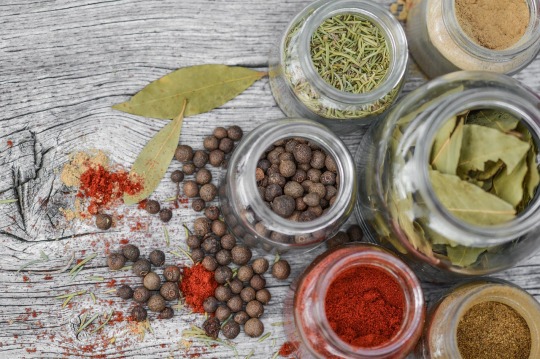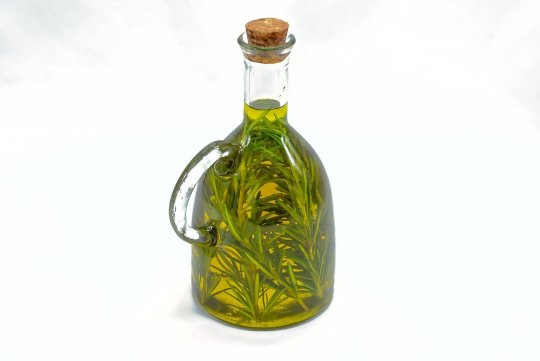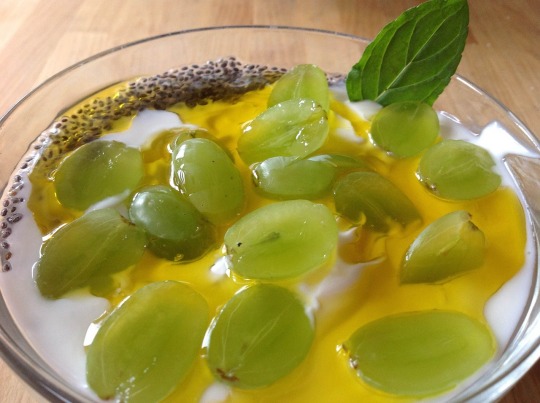Text

Some Natural Remedies To Overcome Erectile Dysfunction
It's essential to note that impotence, also known as erectile dysfunction (ED), can have various causes, including physical, psychological, and lifestyle factors. While some remedies might help alleviate symptoms, it's crucial to consult with a healthcare professional for personalized advice. Here are some common national remedies often suggested:
Herbal Supplements: Various herbs are believed to have aphrodisiac properties and may help improve erectile function. Examples include ginseng, ginkgo biloba, horny goat weed, and maca root. However, scientific evidence supporting their effectiveness is limited, and they may interact with medications or have side effects.
Dietary Changes: Certain foods are thought to boost libido and improve sexual function. These include fruits like watermelon, which contains citrulline, a compound that may help relax blood vessels and improve blood flow. Additionally, foods rich in antioxidants, omega-3 fatty acids, and zinc may support overall sexual health.
Physical Exercise: Regular physical activity can improve blood circulation, reduce stress, and enhance overall well-being, which may benefit erectile function. Aerobic exercises like walking, running, cycling, and swimming are particularly beneficial.
Stress Management: Stress and anxiety can contribute to erectile dysfunction. Techniques such as meditation, deep breathing exercises, yoga, and progressive muscle relaxation may help reduce stress levels and improve sexual function.
Traditional Medicine: Some cultures have traditional remedies for treating impotence. For example, traditional Chinese medicine (TCM) practitioners may recommend acupuncture, herbal formulations, or specific dietary modifications based on individual constitution and diagnosis.
Lifestyle Changes: Quitting smoking, reducing alcohol consumption, maintaining a healthy weight, and managing underlying health conditions like diabetes and hypertension can all help improve erectile function.
Communication and Counseling: In cases where psychological factors play a significant role, counseling or sex therapy can be beneficial. Open communication with your partner about concerns and desires can also help alleviate performance anxiety and improve sexual intimacy.
It's crucial to approach these remedies with caution and seek guidance from healthcare professionals, especially if you have underlying health conditions or are taking medications. Additionally, what works for one person may not work for another, so a personalized approach is essential. Always prioritize safety and consult with a healthcare provider before starting any new treatment regimen.
0 notes
Text

Detoxing is a popular concept, but it's important to note that the body has its own natural detoxification processes through organs like the liver and kidneys. However, there are some natural remedies that are believed to support these processes. Here are a few:
1. Water: Staying hydrated is crucial for detoxification as it helps flush out toxins through urine and sweat. Drink plenty of water throughout the day to support your body's natural cleansing processes.
2. Green Tea: Green tea contains antioxidants called catechins, which have been shown to support liver function and promote detoxification. Drinking green tea regularly may help enhance your body's ability to eliminate toxins.
3. Lemon Water: Starting your day with a glass of warm water with lemon juice can help stimulate digestion and support liver function. Lemon water is also hydrating and provides vitamin C, which is an antioxidant.
4. Fruits and Vegetables: Many fruits and vegetables are high in fiber, vitamins, and minerals that support detoxification. Foods like broccoli, kale, spinach, berries, and citrus fruits are particularly beneficial for their antioxidant and fiber content.
5. Herbal Teas: Certain herbal teas, such as dandelion tea, milk thistle tea, and ginger tea, are believed to support liver health and promote detoxification. These teas may help stimulate bile production and improve liver function.
6. Activated Charcoal: Activated charcoal is a porous substance that binds to toxins in the gut, preventing their absorption into the bloodstream. It is sometimes used as a supplement to support detoxification, particularly in cases of poisoning or overdose.
7. Exercise: Regular physical activity can help support the body's natural detoxification processes by stimulating circulation, sweating out toxins, and supporting overall health.
8. Epsom Salt Bath: Soaking in a bath with Epsom salt (magnesium sulfate) may help draw out toxins through the skin and promote relaxation. This can be a soothing way to support detoxification while also relieving muscle tension.
9. Probiotics: Probiotic supplements or fermented foods like yogurt, kefir, and sauerkraut can help support gut health by promoting the growth of beneficial bacteria. A healthy gut microbiome is important for proper digestion and elimination of toxins.
10. Fasting: Some people choose to incorporate intermittent fasting or occasional juice fasts as a way to support detoxification. Fasting periods allow the body to focus its energy on cellular repair and detoxification processes.
It's essential to remember that while these natural remedies may support the body's detoxification processes, they are not a replacement for medical treatment or a healthy lifestyle. It's always a good idea to consult with a healthcare professional before making significant changes to your diet or lifestyle, especially if you have any underlying health conditions.
0 notes
Text

7 Herbs That Can Reduce High Blood Pressure:
Several herbs have been traditionally used for lowering high blood pressure. However, it's essential to consult with a healthcare professional before incorporating them into your routine, especially if you're already taking medication for hypertension. Here are some herbs and their potential effects:
1. Garlic: Garlic contains allicin, a compound believed to relax blood vessels and lower blood pressure. Some studies suggest that garlic supplementation may modestly reduce blood pressure levels.
2. Hawthorn: Hawthorn is known for its cardiovascular benefits. It may help dilate blood vessels, improve blood flow, and lower blood pressure. Research indicates that hawthorn extract may be beneficial for individuals with mild to moderate hypertension.
3. Basil: Basil is rich in eugenol, a compound that may help lower blood pressure by relaxing muscles around blood vessels. Some studies suggest that basil extract supplementation could contribute to blood pressure reduction.
4. Celery Seed: Celery seed contains compounds like phthalides, which may help relax the muscles in and around arterial walls, leading to lower blood pressure levels. However, more research is needed to confirm its effectiveness.
5. Cinnamon: Cinnamon contains compounds that may improve blood vessel dilation and reduce inflammation, potentially contributing to lower blood pressure. Some studies suggest that cinnamon supplementation may have a modest effect on blood pressure reduction.
6. Ginger: Ginger has been traditionally used to lower blood pressure. It contains compounds like gingerol, which may help relax blood vessels and improve blood circulation. However, more research is needed to establish its efficacy for hypertension.
7. Turmeric: Curcumin, the active compound in turmeric, has anti-inflammatory and antioxidant properties that may benefit heart health. Some studies suggest that turmeric supplementation could help lower blood pressure, but more research is needed to confirm its effects.
Remember that while these herbs may offer some benefits for blood pressure management, they are not a substitute for medical treatment. Always consult with a healthcare professional before starting any herbal regimen, especially if you have underlying health conditions or are taking medications.
3 notes
·
View notes
Text

Unveiling the Therapeutic Potency of Rosemary Oil: A Natural Elixir for Health and Wellness
In the realm of natural remedies, rosemary oil stands out as a versatile elixir, revered for its numerous health benefits. Derived from the aromatic herb Rosmarinus officinalis, this essential oil has been cherished for centuries, prized not only for its culinary prowess but also for its therapeutic properties. From promoting cognitive function to alleviating pain and boosting hair health, the multifaceted benefits of rosemary oil continue to captivate researchers and health enthusiasts alike.
One of the most celebrated attributes of rosemary oil is its ability to enhance cognitive performance. Studies suggest that inhaling the aroma of rosemary oil can bolster cognitive function, including memory retention and mental clarity. The scent of rosemary has been found to stimulate the production of neurotransmitters in the brain, thereby sharpening focus and improving concentration levels. Whether diffused in the air or applied topically, rosemary oil has emerged as a natural cognitive enhancer, offering a fragrant solution for mental fatigue and cognitive decline.
Beyond its cognitive benefits, rosemary oil is renowned for its analgesic properties, making it a popular choice for pain relief. The oil contains compounds such as camphor and eucalyptol, which possess anti-inflammatory and analgesic properties. When applied topically, rosemary oil can help alleviate muscle pain, joint discomfort, and headaches, offering a soothing alternative to conventional pain relievers. Its natural ability to reduce inflammation makes it particularly beneficial for individuals suffering from conditions such as arthritis or migraines.
In addition to its cognitive and analgesic effects, rosemary oil is also valued for its role in promoting hair health. With its potent antioxidant properties, rosemary oil can help nourish the scalp, stimulate hair follicles, and improve circulation, thereby promoting healthy hair growth. Regular application of rosemary oil to the scalp has been associated with reduced hair loss and increased thickness and shine. Furthermore, its antimicrobial properties can help combat dandruff and other scalp conditions, fostering a healthier environment for hair growth.
Moreover, rosemary oil exhibits antimicrobial and antioxidant properties that can support overall health and well-being. Its antimicrobial properties make it effective against various pathogens, including bacteria and fungi, thereby aiding in wound healing and protecting against infections. Additionally, the high concentration of antioxidants in rosemary oil helps neutralize free radicals, which are implicated in aging and chronic diseases. By incorporating rosemary oil into skincare routines or household cleaning products, individuals can harness its antimicrobial and antioxidant benefits for enhanced health protection.
In conclusion, rosemary oil stands as a testament to the healing potential of nature, offering a myriad of health benefits that span from cognitive enhancement to pain relief and beyond. Whether diffused aromatically, applied topically, or ingested in controlled amounts, rosemary oil continues to captivate researchers and wellness enthusiasts alike. As society increasingly embraces holistic approaches to health and wellness, the timeless allure of rosemary oil persists, reminding us of the profound therapeutic power found in the natural world.
0 notes
Text

Grape Seed Oil's Benefits for Hair and Skin
Grape seed oil, derived from the seeds of grapes, offers numerous benefits for both hair and skin:
For Hair:
Moisturizing: Grape seed oil contains emollients that help moisturize and condition the hair, leaving it softer and more manageable.
Strengthens Hair: It contains linoleic acid, which strengthens hair follicles, reducing breakage and promoting healthier hair growth.
Controls Frizz: The lightweight texture of grape seed oil makes it an excellent frizz-tamer, smoothing hair without leaving it greasy or weighed down.
Adds Shine: Regular use of grape seed oil can impart a natural shine to dull hair, enhancing its luster and vibrancy.
Protects Against Damage: Its antioxidant properties help protect hair from environmental damage and heat styling, reducing the risk of split ends and breakage.
For Skin:
Antioxidant Protection: Grape seed oil is rich in antioxidants, such as vitamin E and polyphenols, which help protect the skin from free radical damage and premature aging.
Moisturizes: The lightweight texture of grape seed oil makes it an ideal moisturizer for all skin types, including oily and acne-prone skin, as it hydrates without clogging pores.
Improves Skin Elasticity: Regular application of grape seed oil can help improve skin elasticity, reducing the appearance of fine lines and wrinkles.
Evens Skin Tone: It contains natural astringent properties that can help even out skin tone and reduce the appearance of hyperpigmentation and dark spots.
Soothes Irritation: Grape seed oil has anti-inflammatory properties that can help soothe and calm irritated skin, making it suitable for sensitive skin types.
Overall, grape seed oil is a versatile and beneficial ingredient for both hair and skin care, offering moisturizing, protective, and nourishing properties.
0 notes